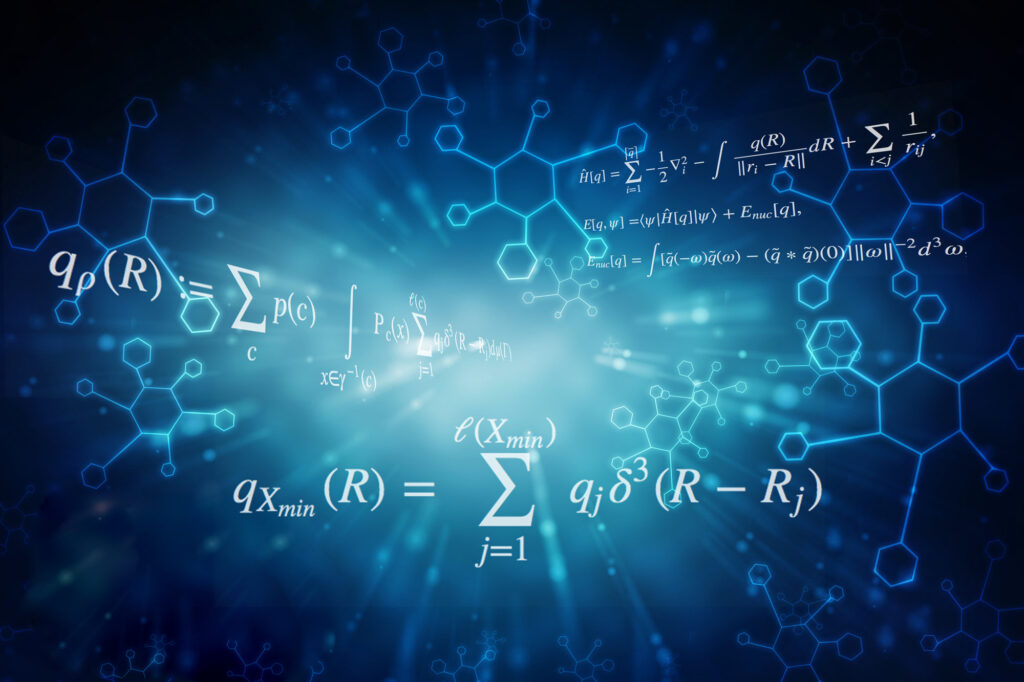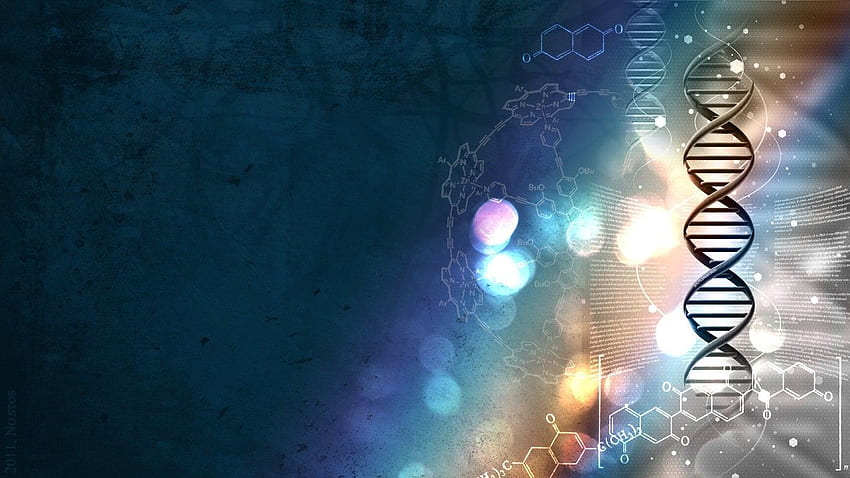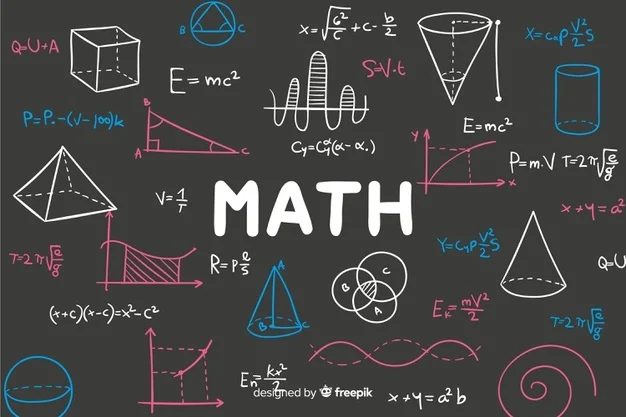Determining whether math or chemistry is harder depends largely on individual strengths and interests. Math challenges students with abstract concepts and demands precise logical reasoning and problem-solving skills in branches like algebra and calculus.
Meanwhile, Chemistry combines theoretical understanding with practical laboratory skills, requiring students to grasp complex chemical reactions, atomic structures, and the balancing of equations.
While some may find math’s abstract nature daunting, others might struggle with the empirical and experimental aspects of chemistry. Ultimately, the difficulty is subjective and varies from person to person, influenced by personal aptitudes and preferences. Both subjects are essential and offer unique challenges and rewards.
Understanding Math

Mathematics is like a big family with lots of different branches, each focusing on its special area. Number theory is all about understanding numbers, such as figuring out what makes certain numbers special, like primes.
To improve at math, practice regularly and focus on understanding the reasons behind concepts instead of just memorizing rules. Don’t be afraid to ask for help when you need it! i
Algebra is like solving puzzles with letters and numbers, trying to find out what those mystery letters stand for. It involves studying numbers that can’t be written as simple fractions.
If you want to get better at math, practice regularly and try to understand the reasons behind things instead of just memorizing rules. Don’t be afraid to ask for help when you need it!
Then there are statistics and probability, which are all about looking at data and trying to predict what might happen in the future. Math is super important in lots of areas like science, engineering, computers, and even money stuff like finance and economics. If you want to get better at math, practice regularly and try to understand the reasons behind things instead of just memorizing rules. Don’t be afraid to ask for help when you need it!
Understanding Chemistry
Understanding chemistry is akin to unraveling the intricate tapestry of the natural world, where matter exists in myriad forms and undergoes constant transformations. Chemistry studies the fundamental building blocks of the universe—atoms and molecules—and their interactions to form substances with distinct properties. This exploration spans across various branches of chemistry, each offering a unique perspective on different aspects of the matter.
In organic chemistry, the focus is on the study of carbon-containing compounds, which form the basis of life and are ubiquitous in nature. Understanding the structures and reactions of organic molecules is crucial for fields like biochemistry and pharmaceuticals.
Inorganic chemistry delves into the properties and behavior of inorganic compounds, which encompass everything from metals and minerals to salts and acids. This branch of chemistry is essential for understanding materials science, catalysis, and environmental chemistry.
Physical chemistry explores the theoretical principles that govern chemical systems, such as thermodynamics, kinetics, and quantum mechanics. By delving into the underlying theories behind chemical phenomena, physical chemistry provides insights into the fundamental forces that drive reactions and transformations.
Analytical chemistry focuses on the techniques and methods used to identify, quantify, and characterize chemical substances. From chromatography to spectroscopy, analytical chemists employ a range of tools to analyze complex mixtures and elucidate the composition of unknown samples.
Practical laboratory work is an integral component of understanding chemistry, allowing students to apply theoretical concepts in a hands-on setting. Ocesses, develop critical thinking skills and hone their ability to analyze data and draw conclusions. Through experiments and observations, learners gain valuable insights into chemical pr
Moreover, chemistry extends far beyond the confines of the laboratory, playing a pivotal role in addressing pressing global challenges. Sources and combating climate change to tackling public health crises. Chemistry offers solutions to society’s pressing issues, from developing sustainable energy
Comparison of Difficulty

| Difficulty | Foundational Concepts | Skills |
| Math | – Algebraic Manipulations | – High-Level Problem Solving |
| – Calculus (Differentiation, Integration) | – Applying Mathematical Concepts | |
| – Linear Algebra | – Logical Reasoning | |
| Chemistry | – Atomic Structure | – Understanding Complex Interactions |
| – Chemical Bonding | – Applying Formulas and Reactions | |
| – Stoichiometry | – Memorization of Elements, Formulas, Reactions | |
| Concepts | – Quantum Mechanics | – Critical Thinking |
| – Thermodynamics | – Analytical Reasoning | |
| – Organic Chemistry | – Abstract Reasoning | |
| Abstract Reasoning | – Understanding Abstract Models | – Drawing Conclusions from Complex Data |
| – Interpreting Theoretical Concepts | – Logical Deduction | |
| – Predicting Chemical Behavior | – Synthesizing Information | |
| Skills | – Data Analysis | – Problem-Solving |
| – Experimental Design | – Communication of Ideas | |
| – Research Methodology | – Hypothesis Testing |
Abstract Concepts
Infinity: Understanding the concept of infinity involves grasping the idea of a quantity or a value that has no bound or end. This concept is fundamental in various branches of mathematics, such as calculus, where limits and infinite series play a crucial role. Requires the ability to think abstractly and comprehend concepts beyond finite values or quantities.
Calculus: Calculus deals with the study of change and motion, involving concepts like derivatives and integrals. It’s used to solve problems related to rates of change, optimization, and areas under curves.
Requires a strong foundation in algebra and trigonometry, as well as logical reasoning to understand abstract concepts like limits and infinitesimals.
Linear Algebra: Linear algebra focuses on vector spaces and linear mappings between these spaces. It’s essential in various fields such as physics, computer science, and engineering. Involves abstract concepts like vector spaces, linear transformations, and eigenvalues, requiring strong logical reasoning and abstract thinking skills.
Foundational Skills
Sequential Learning: Mathematics successively builds upon itself, meaning that understanding basic concepts is crucial for comprehending more advanced topics. Success in higher-level math courses depends heavily on a solid grasp of foundational concepts like arithmetic, algebra, geometry, and trigonometry.
Algebra: Algebra forms the foundation of many mathematical concepts. It involves manipulating symbols and equations to solve problems. Mastery of algebraic concepts such as equations, inequalities, functions, and graphing is essential for success in higher-level math courses.
Trigonometry: Trigonometry deals with the relationships between angles and sides in triangles. It’s used extensively in calculus, physics, and engineering. Understanding trigonometric functions, identities, and properties is crucial for advanced mathematical and scientific studies.
Critical Thinking and Problem-Solving Skills
Analytical Thinking: Mathematics requires the ability to analyze problems, break them down into smaller components, and identify relevant patterns or relationships.
Critical thinking skills are essential for evaluating different solution strategies and selecting the most efficient or appropriate approach.
Problem-Solving Strategies: Problem-solving in mathematics involves devising strategies, making conjectures, and testing solutions. It often requires creativity and persistence. Students need to develop problem-solving skills through practice and exposure to a variety of mathematical problems.
Logical Reasoning: Mathematics is inherently logical, requiring students to construct valid arguments and draw logical conclusions based on given premises. Developing logical reasoning skills helps students understand mathematical concepts more deeply and apply them effectively to solve problems.
Memorization
Periodic Table: The periodic table is a fundamental tool in chemistry, organizing elements based on their atomic number, electron configuration, and chemical properties.
Memorizing the names, symbols, atomic numbers, and key properties of elements can be challenging, especially for students who are new to chemistry.
Chemical Formulas: Chemical formulas represent the composition of compounds and molecules, indicating the types and numbers of atoms present. Memorizing common chemical formulas, including those for simple and complex compounds, is essential for understanding chemical reactions and equations.
Chemical Reactions: Chemical reactions involve the rearrangement of atoms to form new substances. Understanding and memorizing different types of chemical reactions, such as synthesis, decomposition, and combustion, is crucial.
Memorizing reaction mechanisms and the conditions under which reactions occur adds another layer of complexity to the memorization process.
Complex Interactions
Chemical Bonding: It involves the interactions between atoms to form molecules or compounds. Understanding the different types of chemical bonds, such as covalent, ionic, and metallic bonds, is essential.
Visualizing molecular structures and understanding how bonding influences properties like polarity, electronegativity, and molecular geometry can be challenging.
Chemical Equilibria: It describes the dynamic balance between reactants and products in a chemical reaction. Understanding factors that influence equilibrium, such as Le Chatelier’s principle, requires grasping complex interactions between molecules and ions.
Predicting the behavior of systems at equilibrium and interpreting equilibrium constants involves a deep understanding of chemical interactions and kinetics.
Reaction Mechanisms: Reaction mechanisms detail the step-by-step pathways by which chemical reactions occur. Understanding these mechanisms requires visualizing the movement of atoms and electrons during bond formation and breaking.
Analyzing reaction mechanisms involves understanding the role of catalysts, intermediates, and transition states, adding complexity to the study of chemical interactions.
Applying Math Concepts
Stoichiometry: Stoichiometry involves using balanced chemical equations to determine the quantities of reactants and products in a chemical reaction.
Applying mathematical concepts such as mole ratios, stoichiometric calculations, and percent yield requires a strong foundation in algebra and dimensional analysis.
Gas Laws: Gas laws describe the behavior of gases under different conditions of temperature, pressure, and volume. Solving gas law problems involves applying mathematical relationships like Boyle’s law, Charles’s law, and the ideal gas law.
Understanding and manipulating equations derived from gas laws require mathematical skills such as rearranging equations and solving unknown variables.
Thermodynamics: It deals with the study of energy changes in chemical reactions and physical processes. Applying mathematical concepts such as heat capacity, enthalpy, entropy, and Gibbs free energy to thermodynamic calculations requires proficiency in algebra and calculus.
Interpreting thermodynamic data and predicting the spontaneity and direction of reactions involves applying mathematical principles to chemical systems.
FAQ’s
Is chemistry harder than further maths?
Based on the percentage of students who achieve top grades, Chemistry A-Level is considered harder than Further Maths. For instance, approximately 22.8% of students received an A* in Maths. In comparison, a lower percentage achieved this grade in Chemistry, indicating a higher difficulty level perceived by students.
Is chemistry the hardest subject?
Yes, Chemistry is often regarded as one of the hardest subjects due to its requirement for a solid understanding of fundamental concepts and the need for mathematical calculations. Its progressive learning structure and the combination of logical and abstract thinking required to master the material also contribute to its difficulty.
Final Words
Deciding if math or chemistry is harder depends on the individual.
Math’s abstract nature and emphasis on logical problem-solving can be tough for some. Meanwhile, chemistry’s blend of theory and hands-on lab work might be challenging for others.
Personal strengths, interests, and learning styles play a big role in how difficult each subject feels. Both math and chemistry have their unique challenges, but they are also rewarding and important fields of study. Ultimately, the difficulty of each subject is subjective and varies from person to person.
